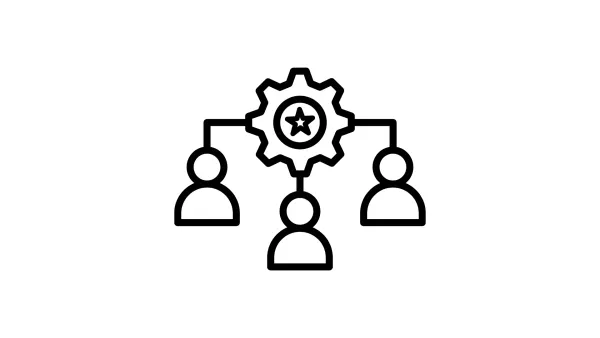Best Web Servers for Hosting E-Commerce Websites in 2025
Looking for the best web server for your e-commerce site? Explore Nginx, LiteSpeed, Apache, OpenResty, and Caddy for high performance, security, and scalability. Learn which server fits your business needs and future-proofs your online store for 2025.

Table of Contents
- Introduction
- Criteria for Evaluating Web Servers
- Top Web Servers for E-Commerce in 2025
- Performance Comparison
- Security Features for E-Commerce Hosting
- Scalability and Load Balancing
- Integration with Popular E-Commerce Platforms
- Cost and Licensing
- Use Case Scenarios
- Emerging Trends in Web Servers for E-Commerce
- Conclusion
- FAQs
Hosting an e-commerce website is no small feat. With customers expecting lightning-fast load times, airtight security, and uninterrupted access, the choice of web server can make or break your online store. In this article, we’ll explore the best web servers for hosting e-commerce websites in 2025 and help you choose the one that fits your needs.
Introduction
The Importance of Choosing the Right Web Server for E-Commerce
Your web server is the backbone of your e-commerce site. It handles customer requests, processes transactions, and ensures a smooth user experience. A poorly chosen server can lead to slow load times, security vulnerabilities, and lost sales.
Key Factors to Consider for E-Commerce Hosting
For e-commerce, the focus is on performance, scalability, and security. You also need a server that integrates seamlessly with your chosen platform.
Criteria for Evaluating Web Servers
Performance and Speed for Handling High Traffic
Your server must be able to handle surges in traffic during peak shopping periods without slowing down.
Scalability to Support Business Growth
As your store grows, your server should be able to scale effortlessly, whether by adding resources or distributing traffic across multiple servers.
Security Features to Protect Customer Data
SSL/TLS, DDoS protection, and robust access controls are essential for safeguarding sensitive customer information.
Integration with E-Commerce Platforms
Your server should work seamlessly with platforms like WooCommerce, Magento, or Shopify, enabling easy setup and management.
Top Web Servers for E-Commerce in 2025
1. Nginx: The Performance Powerhouse
Nginx excels in handling high traffic and concurrent connections, making it a top choice for large e-commerce stores.
- Strengths: High performance, scalability, and load balancing.
- Best For: High-traffic stores with dynamic content.
2. Apache: The Flexible Veteran
Apache’s flexibility and widespread compatibility make it a reliable choice for small to mid-sized e-commerce sites.
- Strengths: Compatibility with CMS platforms and rich module support.
- Best For: Businesses needing extensive customizations.
3. LiteSpeed: Speed and Optimization for CMS Platforms
LiteSpeed is optimized for platforms like WordPress and Magento, offering built-in caching and HTTP/3 support.
- Strengths: Exceptional speed and resource efficiency.
- Best For: E-commerce sites built on popular CMS platforms.
4. OpenResty: A Developer’s Delight for Customization
OpenResty, built on Nginx, is perfect for developers looking to build custom e-commerce solutions with advanced scripting.
- Strengths: Customizability and integration with Lua scripts.
- Best For: Developers managing tailored e-commerce sites.
5. Caddy: Simplicity with Modern Features
Caddy’s automatic HTTPS and easy setup make it a strong contender for small businesses looking for hassle-free hosting.
- Strengths: Ease of use and modern protocol support.
- Best For: Startups and small e-commerce sites.
Performance Comparison
Benchmarks for Handling High Traffic and Dynamic Content
- Nginx: Excels in managing high-concurrency traffic.
- LiteSpeed: Optimized for dynamic content-heavy sites.
- Apache: Reliable but less efficient under heavy loads.
Resource Usage: CPU and Memory Efficiency
- LiteSpeed and Nginx are highly resource-efficient.
- Apache consumes more resources but remains flexible for diverse setups.
Security Features for E-Commerce Hosting
SSL/TLS Support and HTTPS Implementation
All top servers support SSL/TLS for encrypting customer data during transactions.
Built-In Features for DDoS Mitigation
- Nginx and LiteSpeed offer robust DDoS protection.
- Caddy includes rate limiting as an added layer of defense.
Protecting Against Common E-Commerce Threats
Regular updates and security configurations ensure protection against SQL injection, XSS, and other vulnerabilities.
Scalability and Load Balancing
How Each Server Handles Traffic Scaling
- Nginx: Excellent for distributed systems with high traffic.
- LiteSpeed: Scales efficiently for CMS-based e-commerce platforms.
Load Balancing Capabilities for High Availability
Nginx and OpenResty are leaders in advanced load balancing and traffic management.
Integration with Popular E-Commerce Platforms
Compatibility with WordPress and WooCommerce
LiteSpeed and Apache integrate seamlessly with WordPress and WooCommerce, offering performance optimizations.
Magento and Shopify Integration Options
Nginx and OpenResty are great for integrating with enterprise-level platforms like Magento.
APIs and Plugins for Custom Solutions
OpenResty and Nginx are ideal for developers creating custom APIs and plugins.
Cost and Licensing
Free vs. Paid Options for Each Server
- Apache and Nginx offer free versions with optional paid features.
- LiteSpeed has a licensing cost but delivers excellent value for performance-focused hosting.
Balancing Budget with Performance Needs
For small businesses, free options like Apache and Nginx Community Edition are cost-effective, while larger businesses may benefit from investing in LiteSpeed or Nginx Plus.
Use Case Scenarios
- Small E-Commerce Startups: Caddy for simplicity and quick setup.
- Mid-Sized Businesses with Moderate Traffic: LiteSpeed for optimization and scalability.
- Large-Scale Enterprises and High-Traffic Stores: Nginx for handling heavy loads and custom requirements.
Emerging Trends in Web Servers for E-Commerce
Adoption of HTTP/3 and QUIC for Faster Performance
LiteSpeed and Caddy lead the way in supporting modern protocols for speed and reliability.
AI-Driven Optimization for Traffic Management
Future servers will leverage AI for smarter load balancing and threat detection.
Conclusion
The right web server can transform your e-commerce business.
- Choose Nginx for high performance and scalability.
- Opt for LiteSpeed for CMS-based platforms and speed.
- Select Caddy for ease of use and modern features.
Evaluate your needs and make an informed decision to ensure your e-commerce website thrives in 2025!
FAQs
What is the best web server for high-traffic e-commerce websites?
Nginx is ideal for high-traffic websites due to its scalability and ability to handle numerous concurrent connections efficiently.
Is LiteSpeed better than Apache for e-commerce?
LiteSpeed outperforms Apache in speed and resource efficiency, making it a great choice for CMS-based e-commerce platforms like WordPress and Magento.
Can I use Caddy for hosting an e-commerce store?
Yes, Caddy is perfect for small businesses and startups, thanks to its simplicity, built-in HTTPS, and modern protocol support.
What makes Nginx suitable for e-commerce websites?
Nginx excels in load balancing, reverse proxying, and handling dynamic content, ensuring smooth performance for large-scale stores.
Is Apache still relevant for e-commerce hosting in 2025?
Yes, Apache remains a reliable choice for mid-sized businesses due to its flexibility, extensive module support, and compatibility with various platforms.



